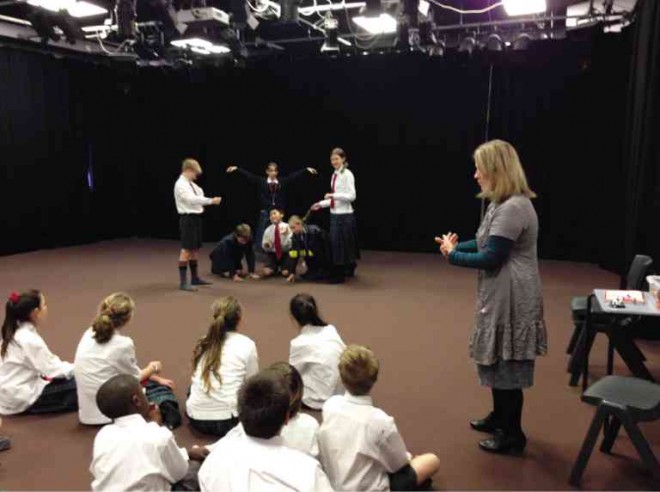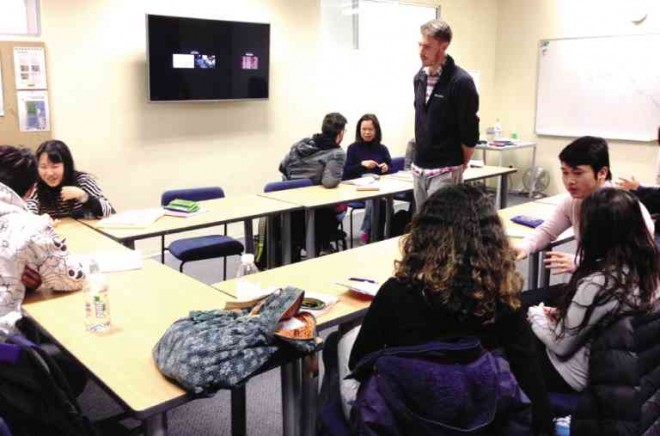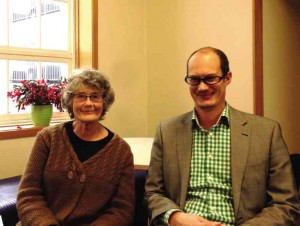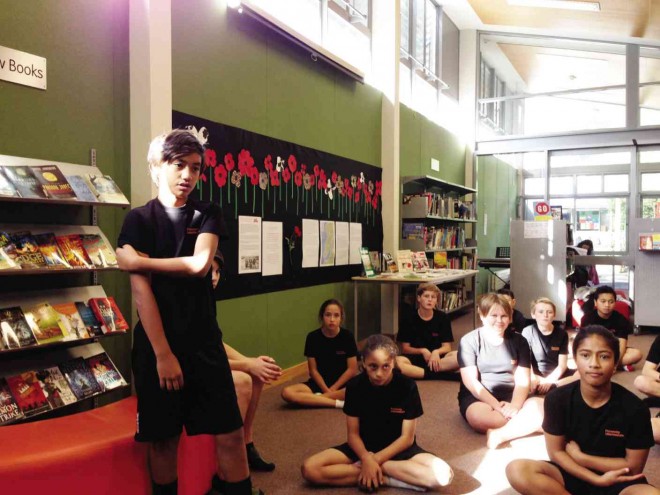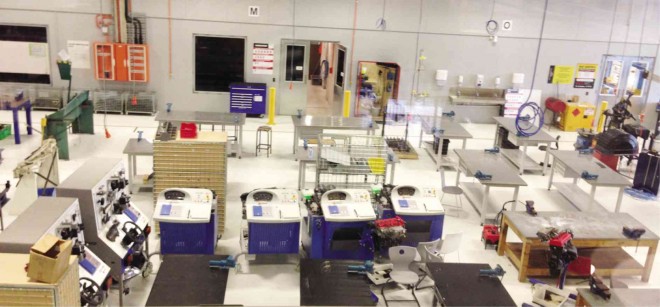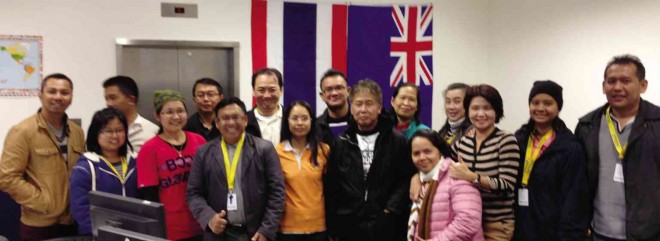Picked up pieces
Quality of life is a serious consideration when you’re thinking of studying abroad. You’re not just going there to study; you’re going to have to live there for as long as it takes for you to complete, say, a special English course or an undergraduate degree or a postgraduate research, even further training for a trade.
“Live” being the operative word, consider these facts about New Zealand: It ranked No. 1 in the Worldwide Index of Human Freedom in 2012; No. 3 out of 178 countries in The Heritage Foundation’s Index of Economic Freedom this year; and No. 4 in the Institute for Economics and Peace’s Global Peace Index.
The Asean students we met recently while on a tour hosted by Education New Zealand (ENZ) said that Kiwiland was not only a safe and peaceful place to do a lot of things besides study, it was also scenic and beautiful from north to south.
Proximity is also a plus point. The distance between any Asean country and NZ makes the back and forth easier to fund and bear than if they have to travel all the way to the United States and the United Kingdom, two traditional learning destinations for much of the world.
But, typically Asian, the students’ top reason for choosing NZ is the dynamic and world-class quality of education. The schools are among the best in the world, going by global rankings. NZ universities are internationally renowned for innovative courses in sport science, physiotherapy, geology, environmental science and marine studies.
As Middleton Grange School director Tibor Toth noted, “You can go anywhere in New Zealand and get a good, solid education. There will be no big discrepancy in the quality.”
Article continues after this advertisementI have to agree. Many times during our visit—facilitated by ENZ senior communications advisor Rose O’Connor with help from international general manager Peter Bull and business development manager Greg Scott—I was both awed by and felt envious of the educational opportunities available to Kiwis. “I wish we had that,” I would think to myself.
Article continues after this advertisementOn this page are some of the reasons that I succumbed to one of the seven deadly sins.
For more information about education in New Zealand, including scholarships, go to studyinnewzealand.com
Study tours and more
MIDDLETON Grange School, a co-ed Christian school in Christchurch, welcomes international students to sit with Kiwi students at all levels—primary (Years 1-6), middle (7-10) and senior college (11-13).
But it has an international college that looks after the foreign students, who are each assigned a school guardian and placed in an NZ family home for immersion in the Kiwi culture and the English language.
The school offers three-week study tours for students or teachers from overseas. Teachers attend lectures in teaching methods and the NZ educational system, go on cultural visits and get to observe Middleton classes.
This semiprivate school’s facilities are all topnotch but it will be hard to find an equal to Middleton’s awesome Performing Arts Center for teaching Dance, Drama, Music and Maori Culture elsewhere.
Visit www.middletoninternational.com.
English only, please
TIM MAHREN Brown and his mom, Julia, were walking on the beach one day when he suddenly asked, “Do you want to start a school?”
They were both teachers who thought they could do a better job of teaching the English language and taking care of students. And so they put up The Campbell Institute in Wellington.
“We are a boutique school,” Brown, now CEO, said. “We offer nothing but English.” Teaching is customized to the needs of international students.
In the beginning, they had only one student, recalled Julia, “a lovely boy in dreadlocks who walked in off the street.” The lucky boy had the three founders of Campbell as teachers.
Today, students from 27 different countries are enrolled at this specialist school. German, Chinese and Japanese students top the list.
Campbell teaches the English language in as short a time as two weeks or as long as 48 weeks, depending on a student’s starting point, goal and motivation.
Their most popular course is General English, which is targeted at students who want to improve their English for communication, travel and work purposes.
A student must be at least 14 years old to be accepted at Campbell. Each student gets an extra one-on-one, 15-minute session with the teacher every week.
Campbell also teaches English language teachers.
Visit www.campbell.ac.nz.
Hands-on and community-oriented
THE YOUNGEST university in NZ yet second largest in enrollment, Auckland University of Technology (AUT) sees to it that all Health Sciences students engage in practical experience, not just classroom study. For this reason, it runs a multidisciplinary clinic where students can help treat real people in the community.
Its Akoranga Integrated Health on the North Shore campus provides supervised hands-on experience in its specialized clinics. Students not only have access to modern equipment and technology, they also get clinical training alongside students of the other health sciences for a more holistic approach to patient care.
AUT is known to have one of the strongest and largest physiotherapy programs in the Southern Hemisphere. Under physiotherapy are the musculoskeletal clinic, the neurological clinic and the cardio-respiratory clinic.
Students assist in restoring function and mobility in people who have difficulties resulting from arthritis, cardiovascular and respiratory diseases, osteoporosis, or neurological condition such as stroke, Parkinson’s disease or head injury. They also help older people in the community keep healthy through exercise and socialization in the Never Too Old program.
The only podiatry school in NZ is at AUT. The students assist in the diagnosis, treatment, prevention and rehabilitation of the lower limb, such as soreness in the heel, foot, shin or knee, foot and nail problems, and pain related to diabetes and rheumatoid arthritis.
AUT also houses an oral health clinic, one of two in NZ. No doctor of Dentistry degree is offered but it has a three-year program in both Dental Therapy and Dental Hygiene.
The focus is on prevention—oral health assessment, diagnostic X-rays, full mouth cleaning, sports mouth guards. Students help out at the annual outreach program that provides oral healthcare and education for migrant workers.
The Health Science programs at AUT include Psychology, Nursing, Paramedicine, Midwifery, Occupational Therapy, Counseling, and such specialized areas as Health Administration, Health Promotion and Case Management.
“Our point of difference here at AUT is practical, applied, occupation-specific education, so our graduate employment rate is high. Our students walk out the door job-ready,” said Pamela Miller-Staggers, AUT international marketing manager.
Visit www.aut.ac.nz.
A Maori welcome
THE HIGHLIGHT of our Education New Zealand tour for me was the Powhiri or Maori welcome given to us at this school in an upper middle-class suburb of Auckland. Rows of students sang and danced for our Asean group in what is known as a “kapa haka” performance. Before each song, a student would give a brief introduction. One of them, we were told, was part Maori.
The school tour with Wim Boxen, principal, and Jill Charlton, international student coordinator, occasioned much sighing on our part.
Ponsonby has special spaces that our schools can only—forever it seems—dream of: fully equipped science lab, multimedia and electronics workshop, food and biotech room; courts for tennis, basketball, netball, volleyball, etc. Not to mention a spacious playing field because the school sits on a 3-hectare property.
In the music suite, the students can play and record music, even make music videos. They have four periods of Music a week and another four for Performing Arts, so of course they have a performing arts and dance studio.
“We come together as a whole school to sing and make music once a week, every Thursday,” the Music teacher said.
In the computer lab, the children were coding games. In the art studio, the kids were painting their own designs on skateboards. In the fashion and design technology room, they were learning to make batik.
And to think this was just an intermediate school for Years 7 and 8!
Each term at Ponsonby, a student can pick an optional subject to study for 1.5 periods per week. By the end of the year, a student will have taken four different electives, be it Drama, Music, Sports, Design and Technology, Strategy Games, or Languages, including Maori.
“Students today can speak Maori better than us,” assistant principal Nick Wilson said. “The Maori language is enjoying a renaissance.”
Not just speak but, as we heard, sing as well.
Visit www.ponsonbyintermediate.school.nz.
Trades and e-learning
STEWART Brougham, director of the international center at Waikato Institute of Technology (Wintec) in Hamilton, introduced us to a group of Thai Public Health teachers who were sent by their government to New Zealand for a three-week training on e-learning.
Wintec was providing this group of eight women and seven men with the technology model for blended learning that they could introduce to the Nursing students at their 40 institutes of Public Health.
The teachers took advantage of Wintec’s home-stay placement for international students to be exposed to the Kiwi culture and to improve their English.
In addition to online education, Wintec offers training in an amazing range of trades—from automotive to electrical and mechanical engineering, from plumbing to roofing to building design, from construction to industrial measurement and control.
The facilities for teaching the trades were drool-worthy, to say the least.
Visit www.wintec.ac.nz.
